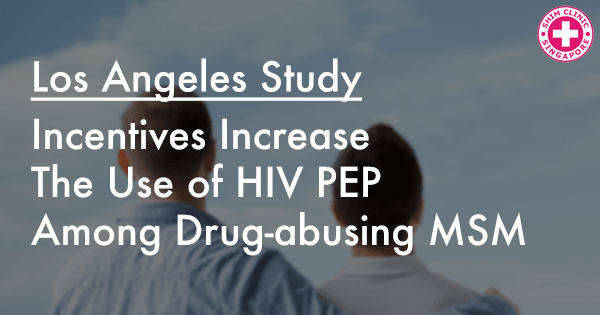Post exposure prophylaxis (PEP) is an emergency intervention therapy given after an exposure to HIV. The effectiveness of PEP depends on the individual being administered human immunodeficiency virus (HIV) antiretroviral therapy by a clinic specialising in STD as quickly as possible after such an exposure, and it should be continued for 28 days.
Stimulant-Using Men Having Sex with Men at High Risk of HIV Acquisition
Research has shown that Stimulant-using men who engage in sexual intercourse with men (MSM) are at high risk of getting HIV. This is largely because of increased numbers of unprotected sexual encounters while under the influence of stimulant substances.
A recent study published in by Oxford University Press on behalf of the Infectious Diseases Society of America revealed that Contingency Management (CM), which involves giving incentives, helps in improving PEP efficacy in MSM. The study involved HIV-uninfected adult males in Los Angeles, California who self-identified as MSM, admitted to using stimulants including methamphetamine, amphetamine, powder or crack cocaine 30 days prior to the study. The participants also admitted to having participated in unprotected anal intercourse with HIV-positive or HIV status unknown partners in the previous 3 months.
The participants were recruited from print and online advertising, bars, clubs, commercial sex venues and service locations known to be frequented by stimulant users. Participants were observed for 6 months after enrollment or for 6 months after the most recent high-risk sexual exposure that necessitated PEP use.
Standard care for Public Health Department-Funded PEP Programs in Los Angeles
Two-drug PEP is the standard therapy used in public health department-funded PEP programs in Los Angeles County. For this reason, 140 participants were randomly assigned to receive one of two 8-week behavioral interventions, that is CM or a noncontingent “yoked” control (NCYC) group. 70 participants were assigned to each of the two groups. Participants were tested for HIV infection and sexually transmitted infections (STIs) at the beginning of the study, at 3 months and at 6 months post-enrollment as well as in a parallel schedule for PEP initiators. The participants in the CM group were given a voucher worth $2.50 for their first urine sample that was negative for stimulant metabolites. Successive urine samples that were negative for stimulant metabolites increased by $1.25 until the value of a urine sample negative for stimulant metabolites reached $20.00.
Findings of the Study
40 of the 140 participants initiated PEP after a high-risk exposure during the study period. Out of these 26 were in the CM group and 14 in the NCYC group. Follow-up rates for the PEP-specific visits at week 4–6 and 3- and 6-months postexposure were 62%, 75%, and 76%, respectively.
More urine samples that are free of stimulant metabolites were submitted by participants in the CM group compared with those in the NCYC group. At the 6-month follow-up visit, 69.6% of CM participants and 59.3% of NCYC participants produced a stimulant-free urine sample. Tests during the study also revealed significant reductions in episodes of condomless anal intercourse in the CM group from the time the study began to the 6-month follow-up.
From the study, it is clear that CM incentives facilitated the use of PEP by reducing stimulant use and increasing rates of therapy completion. CM has also improved adherence a factor that greatly affects PEP efficacy. Significant substance abstinence observes in the CM group not only improves an individual’s general health but is also expected to have HIV-prevention benefits.
Stimulant use is generally associated with increased transmission risk behavior and the fact that Contingency Managment can considerably reduce stimulant use which then reduces risk behavior and consequently enables the patient to use PEP more effectively is a welcome discovery.
Please find the study here: http://www.ncbi.nlm.nih.gov/pmc/articles/PMC4396429/


Pingback: An App To Help Patients Stick to HIV Treatment Regime